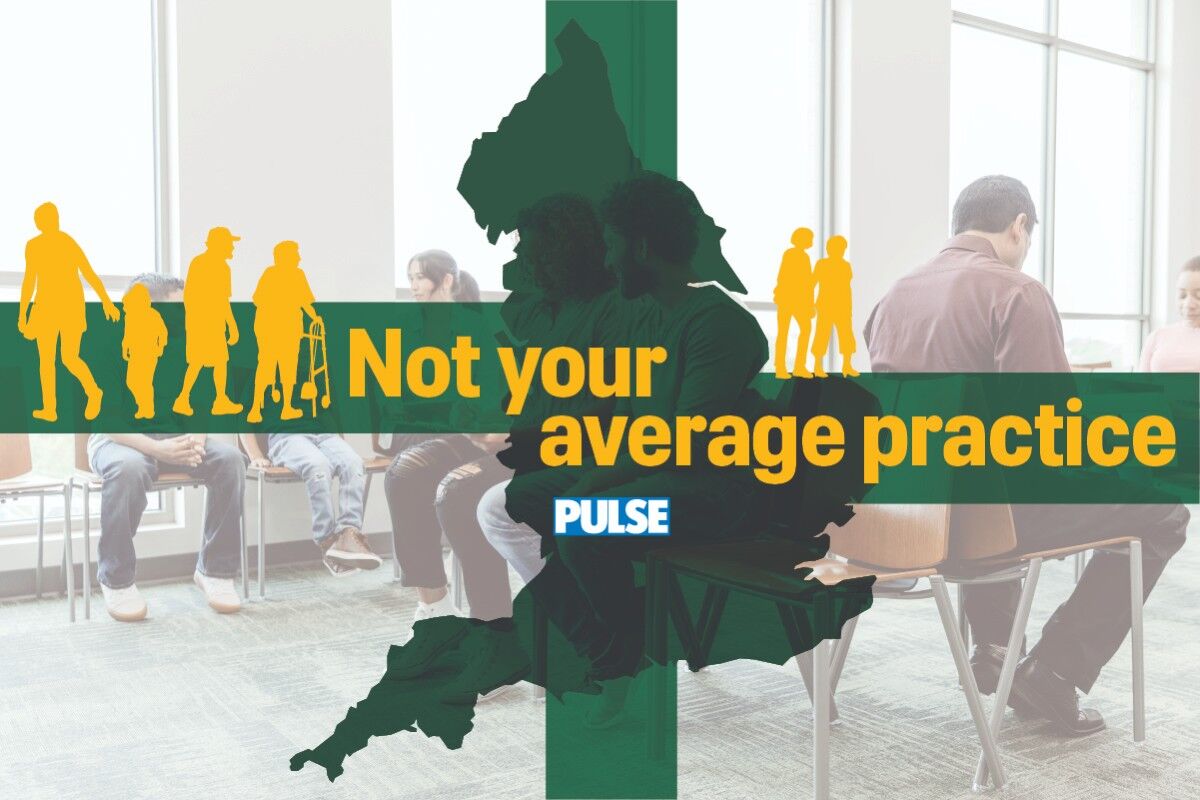The Government has published a new ‘bureaucracy-busting concordat’ which departments need to take into account when creating policy involving general practice.
Seven principles have been ‘developed to help reduce unnecessary bureaucracy and administrative burdens in general practice’, with input from the BMA and RCGP.
The DHSC said that the concordat – aimed at law and policy-makers as well as GP practice teams – is a ‘complementary piece of work’ to its joint review of GP bureaucracy with NHS England.
It hopes the principles will lead to:
- policy being co-designed with representatives of general practice and more proactive discussions between all government departments and the representatives of general practices to understand how changes to policy and or processes will impact them
- an increase in other professionals working in healthcare being able to complete work and requests, not just the GP
- positive response from general practice that bureaucratic burden has been reduced
The principles, published today, include guidance to co-design new processes with GPs; ensuring the most appropriate professional is asked to carry out tasks; and where possible ensuring that extraction of medical evidence is automatic and built into practice systems.
Principles to reduce GP bureaucracy in full
- All policies should be designed with the patient and patient journey at the heart of the process, to ensure a minimum administrative burden for people accessing government services.
- General practice should only be required to provide evidence of a medical nature when it is unavailable by other means. Always consider why factual medical evidence or opinion is required and only request if it is absolutely necessary with as little frequency and depth as possible. Due consideration should be given to how this request for evidence should be funded if the request is made of general practice staff.
- When introducing or reviewing an existing requirement for a medical certificate or examination, ensure that the most appropriate professional for the job is able to certify, promoting alternatives to the GP, including other members of the primary care team whenever possible and appropriate.
- When requesting medical information, ensure standardised forms are available for use and ensure that all information requests are as clear and concise as possible.
- Always consider digital forms rather than paper-based approaches, with standardisation and the potential for automation or data sharing where appropriate, though digital solutions in themselves do not always reduce bureaucracy. Where possible these solutions should be integrated into general practice systems.
- When changing or designing a new process or form, ensure it has been co-designed with those who will be using it, for example GPs or other appropriate healthcare professionals, to ensure it is user friendly and supports our aim to reduce bureaucracy.
- If only medical history is required, where appropriate make provision for the option for patients to provide this themselves rather than requiring it from a GP or health professional. Where possible, this process should be designed without need for GP ratification.
Government departments who follow the concordat pledge to move to alternative pathways for gathering evidence where possible.
Departments agree to embed these principles into their policy and decision-making to enable a more effective and timely system for all.
Source: DHSC
The DHSC said: ‘Workload in general practice is high, and we all have a responsibility across Government to ensure we are not adding to this through unnecessary bureaucracy.
‘It is vital Government understands the pressures on general practice, and that additional asks should be minimised in order to prioritise time for caring for patients, including for vulnerable children and adults, and ensuring patient safety.’
It added that any requests for ‘additional work’ outside of GPs’ contractual requirements ‘should be fully resourced and balanced with their growing workloads relating to other clinical priorities’.
The DHSC said the new principles ‘signal to the sector the Government’s commitment to adhere to the principles of reducing burdens and aims to change culture across Government and improve how Government works with general practice’.
It added that less bureaucracy will free up more time for GP appointments and ‘[improve] access for all’, contributing to the Government’s commitment of 50 million more appointments in general practice every year.
It also said that the principles are hoped to ‘increase job satisfaction, retention, role attractiveness and support ambitions to grow and diversify the general practice workforce’.
The DHSC said that ‘culture change does not happen overnight and can be difficult to measure’, but that ‘over time’ it expects to see more healthcare professionals being able to complete requests rather than just GPs and a ‘positive response’ from general practice.
The DHSC and NHS England will ‘continue to engage with stakeholders to understand whether the concordat is having a real impact on GPs and gather any feedback’, it said.
Primary care minister James Morris said: ‘Since becoming minister for primary care and patient safety, one of my key priorities has been to better understand how we can help reduce the daily pressures GPs and their teams face.
‘Today we have published a new set of principles, developed with input from the British Medical Association and Royal College of Practitioners, to reduce unnecessary bureaucracy. By cutting red tape we can ensure GPs and their staff have more time to focus on providing high-quality medical care for patients.’
Former BMA GP Committee chair Dr Richard Vautrey told Pulse: ‘These principles were outlined over a year ago and their agreement now by government departments whilst welcome is long overdue.
‘All too often the default position has been to direct people unnecessarily to general practice, adding additional workload to already overloaded practices and creating needless bureaucracy for patients.
‘We urgently need the whole of government, not just the Department of Health and Social Care, to take every step possible to reduce practice workload.
‘They now need to take these principles seriously in reviewing any activity that relates to general practice to free up practices from unnecessary bureaucracy so they can focus more on patients’ needs.’
The GP bureaucracy review has previously resulted in proposals to cut GP appraisals back from five hours to 30 minutes and the allowing of death certificates to be emailed.
The NHS in England is also working on plans to allow patients to register with a GP practice online, while this summer, the fit note process was finally reformed so more healthcare professionals can issue them.
However it comes as NHS England has asked Capita to restart GP patient list cleansing, despite concerns raised by the BMA that it is a ‘bureaucratic burden’ for practices.
And it was revealed that GPs could be tasked with prescribing money off energy bills for their most vulnerable patients, under proposals put forward by the Treasury to tackle the cost-of-living crisis.











These are good ideas, but they already exist and are routinely flouted by hospitals in favour of their idiotic and misleadingly-named “access policies”. What’s needed is a reset of the approach NHSE and DHSC take to healthcare in general, which encourages the exact opposite of the focus on the patient journey that these principles claim to encourage.
The government’s announcement of a “bureaucracy-busting concordat” to reduce unnecessary bureaucracy and administrative burdens on general practice is welcome. But previous initiatives in this area have often failed and It’s essential that this one is successful.
They just need a simple sieve:
1. Is it really necessary at all?
2. is this the fewest steps possible?
3. Are the smallest possible number of people involved?
4. Is minimal necessary data being used, used appropriately, and stored appropriately?
5. Has all associated workload been minimised?
6. Is all work and time properly funded?
7. Has it been discussed with the LMC (and not ‘tame’ managerial GPs)?
When they can answer ‘yes’ to the all above we should consider it.
Yeah right …
The more words used in a document, the less brave, meaningful and knowing it is to instil any change.
Anyway, they can say they’ve had a meeting to “discuss” “formulate” “involve” and “feedback” essentially jack tom dick and harry all.
You keep seeing that cough after 3 weeks and handling the panic attack and stock issue of sertraline. Americans and DoH want you drowned out. You’re an obstacle to the vertical plan. And as they go and side with them, these institutes will soon see the wrath of the public at their own doors. Bring on the bureaucracy, and see who chokes next.
Our new CAMHs referral template is 9 sides of A4 to fill in. They basically expect us to do the clerking of the patient and use the form as a sieve to refuse accepting the patient on any number of spurious reasons. I know the bad old days of ‘please see and treat’ were awful but this is going too far in the opposite direction.
The only way to cope is to print out the form and give it to the patients family to fill in. I love this as they put SO much hand written detail in.
OOh, wonderful news. They could start by sending a copy to the Department for Energy, who appear to need one, according to the next headline from Pulse daily on GPs prescribing help with energy bills!
Basically, what they have concluded and will do, is ask you to get more feedback. On yourself. And not listen to you ever, because the ICS only listens to itself and its own agenda. Stuff you. And you keep making action points and filing in crap minutes of pointless activity, to show some stranger one day who has to tick a box on you and give you a green light that you are making a difference. Then repeat. You think online access to GP notes reduces your burecracy, lost your marbles. Fill in that FFT, and some crap audit and let’s not even start on reflecting on that course you did 9 months ago on urinary incontinence and harassment and bullying. You keep learning, whilst they keep selling it off. Keep society intact. Not for long.
The only thing busting is the amount of constipation and faecal loading in Government buildings currently. Wait till their bin waste is left at their door and the rats come for their leafy pastures.